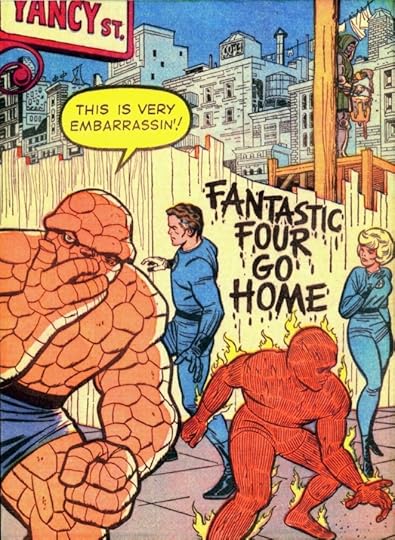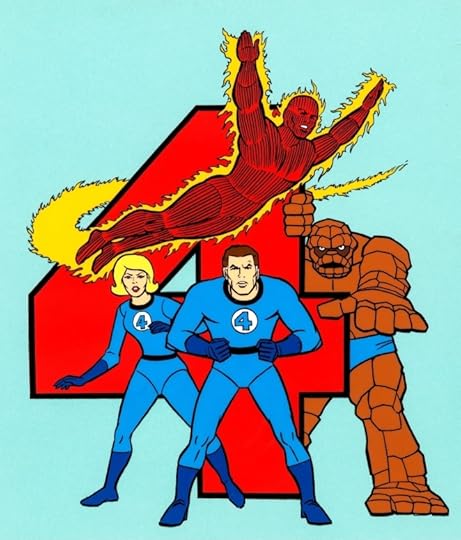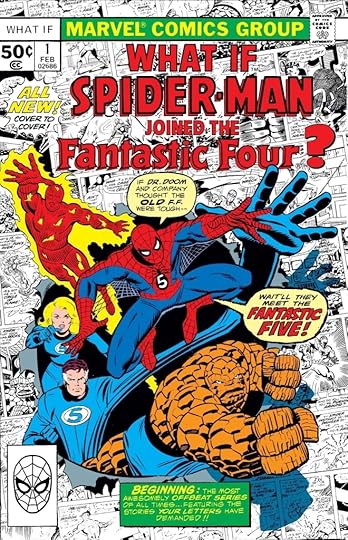David Michael Newstead's Blog
October 10, 2025
Extra ’80s!
David Michael Newstead | The Philosophy of Shaving |
One of my favorite things is to discover a song I’ve never ever heard or heard of before that is so clearly and unmistakably from the 1980s that it doesn’t matter who sings it, in what language, or even what genre it is. Within two seconds, you realize this is a song from the ’80s. Decades after the fact, these are gifts of a few extra moments from the 1980s to be savored and appreciated. This was epitomized by Japanese singer Mariya Takeuchi’s 1984 hit “Plastic Love,” which went viral around the world in the 2010s as listeners came across possibly the best pop song ever that no one knew about. More recently, I found 3 songs that certainly aren’t new, but are new to me. These are… the Yugoslavian synth band VideoSex and their 1984 song “Detektivska Prica.” Then, Canadian singer Lisa Lougheed’s 1988 song “Run With Us.” And finally, American Glenn Fry’s 1985 song “You Belong To The City.” Beyond the sounds, of course, their music videos add even more ’80s flavor to the experience. Enjoy!
October 3, 2025
The Congressman From India
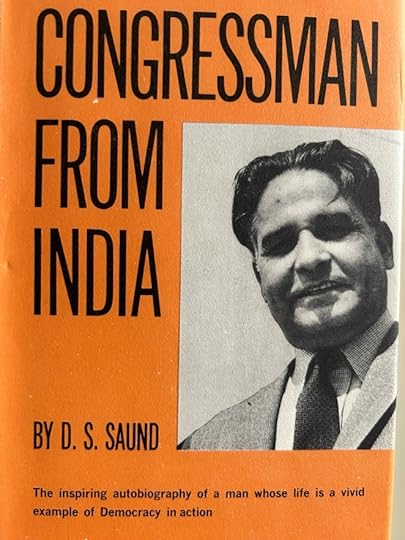
David Michael Newstead | The Philosophy of Shaving |
While digging through a little free library, I picked up a book from 1960. It was entitled Congressman From India and it’s the autobiography of Dalip Singh Saund. Saund has the distinction of being the first Asian-American member of Congress as well as the first Indian-American member of and first Sikh member of Congress where he represented California’s Imperial Valley. Serving from 1956 to 1962, Saund’s immigrant story and eventual political success is noteworthy for many reasons, one of which is timing. Having immigrated to the U.S. in 1920, he arrived just prior to the enactment of the discriminatory National Origins Act of 1924, which was designed to exclude non-whites in general and immigrants from Asia specifically. For that reason, he was not able to become a citizen until 1949. But Saund would also live to see the demise of the National Origins’ system in 1965. In between those dates was a lifetime of work detailed in his biography. His accomplishments span academia, agriculture, and politics in the 1930s and beyond. Interestingly, this copy contained an inscription by Saund’s son written decades after the book’s publication in 1960 and his father’s death in 1973. His son writes:
This book represents a historical chapter from an age when much of today’s transformative technology could not have been imagined. But one lesson endures. Character is what matters most for the health of a society and for our country…
Many firsts are forgotten overtime as the trails they blazed ideally become secured pathways for others. Dalip Singh Saund has since been followed by Indian-American leaders of both parties, representing yet another sign of tremendous success in a relatively short amount of time for that community. Meanwhile, the Indian immigrant experience is now the subject of renewed debate, scrutiny, and hardship. No matter where that takes us, Congressman Saund’s story remains an example to be followed and a sign of potential realized when people are allowed to succeed.
September 26, 2025
A Movie Theater’s Ruins
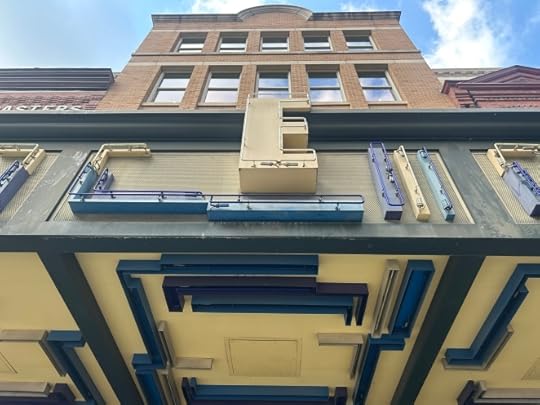
David Michael Newstead | The Philosophy of Shaving
Following up on my blog post from April (A Movie Theater’s Obituary), I recently walked by what used to be E Street Cinema in downtown Washington, DC. It was empty, but mostly unchanged. Part of me was sad to see it abandoned, but I was also relieved the building hadn’t immediately turned into something else. Instead, like some closed movie theaters, it just kind of sits there for a while. Does that mean it might reopen one day… maybe? Or just that commercial space downtown isn’t a hot commodity at the moment? Of course, there’s enough vacant storefronts around here and in general that I know a space could easily just remain empty for years. When that matters, it seems like everyone eventually forgets anything that had ever been there or why it was even constructed. But what if… instead of being repurposed into a restaurant or retail space, a movie theater might be what it was meant to be?
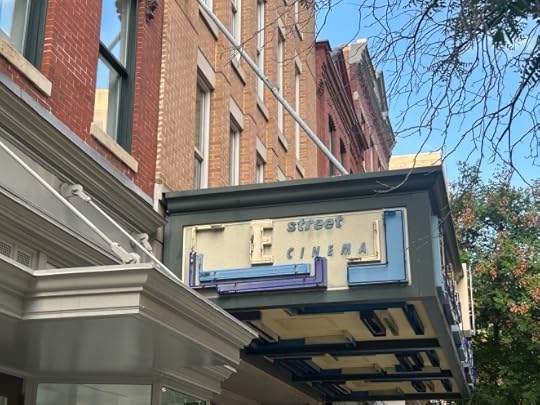
September 19, 2025
Orwell: 2+2=5
September 12, 2025
Shaving Cut
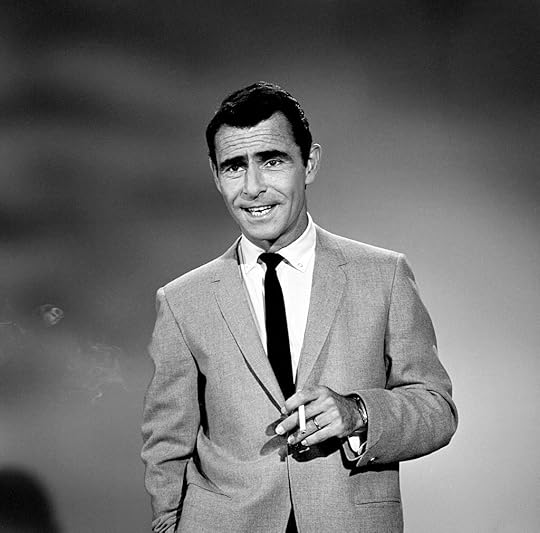
David Michael Newstead | The Philosophy of Shaving |
There’s a short story I’ve been trying to write for a few years now or thinking about trying to write at any rate. It’s maybe an aspiring episode for the original 1960s Twilight Zone. In any case, it might be more interesting as a concept than an actual story. And the original Twilight Zone isn’t exactly coming out with a new season anytime soon. Here’s the synopsis for my non-existent episode.
It’s set in post-war America. 1950s suburbs. Single family home. Midcentury Modern everything. The protagonist has a generic WASP name and haircut. A man cuts himself shaving one morning before work along his right cheek. He recoils in pain, but quickly cleans it up and puts a bandage over the wound. He finishes getting dressed, then heads to the office.
A day passes. Then, a week. Then, a month. To his surprise, his wound hasn’t healed at all. As the man nervously peels back the bandage, he discovers that the cut on his face is actually a tear in the fabric of space and time. When the man stares into it, he’s inundated by a kaleidoscopic view of all the other lives he might have lived and all the other versions of himself who made different decisions in dimensions parallel to our own. This vision ends when his wife calls to him from the other room. He’s been standing in front of his bathroom mirror for almost an hour. The man puts the Band-Aid back into place and resolves to examine the cut again when no one else is around.
Part of him is fearful. Part of him is intrigued. For days, he is fixated, trying to understand the flood of images he saw that night. In some, he never left his hometown. In others, he didn’t survive the war. In another, they lost the war altogether. And so on. And so on. Variation upon variation from the minute to wide chasms across every moment in life. He watched himself married to another woman and occupying a totally different profession. Some lives were exotic and exciting. Most though were different kinds of ordinary. Consumed by these thoughts, he becomes distracted at the office. His coworker mentions the bandage still on his face, but the man dismisses it as nothing more than a cut from shaving.
One weekend, when his wife takes their two children to visit their grandparents, he is finally able to look at the anomaly in more detail. As he stands in front of his bathroom mirror, he is enveloped in intense light pouring out from his cheek. When he opens his eyes again, the man realizes he is in a different room. He walks out to find that he isn’t in his suburban home anymore, but a cramped, noisy New York apartment building. He is alone. What unites this version of him with his own life is the cut across his face. Again he hides it under another bandage, then goes out to explore the city.
For an indeterminate time, the man oscillates between these two realities at every available opportunity. In one, he is a married father of two working at an insurance office and living the American Dream. In the other, he is a chain-smoking artist at an ad agency, free of all responsibilities. Each dimension provides what the other lacks: stability and freedom. He also learns that each version of himself continues to play out its life on a kind of autopilot no matter how long his consciousness is elsewhere. At times, he spends days or weeks away.
Before bed one night, his wife remarks that he’s seemed distant lately. He apologizes to her, saying something about things at work and he proposes a family getaway the next month. Later, the man is stunned when he notices that his wound is beginning to heal. As it gradually closes up, he believes that the doorway between dimensions will slam shut too, stranding him on whichever side he happens to be on. The guilt he feels about possibly abandoning his family is dulled by his unhappiness in life. Maybe the grass isn’t just greener on the other side, he tells himself. Perhaps, he’s made too many compromises over the years that brought him to this moment, this feeling of emptiness, and lack of fulfillment. Yet his quickly disappearing injury has put this particular existentialist crisis on a strict time clock. He has a few hours at most to decide his fate forever. So, with the last rays of that otherworldly light streaming from his face, he stands on the cold tiled floor, gazing into the mirror, and makes his decision.
In the next instant, it is left unclear what he decided as each version of the man steps away from the mirror over his sink and walks out into the wider world.
Voice Over: For your consideration… the trials and tribulations of Mr. Robert J. Smith, a man beleaguered by life’s many what if’s and the weight of his inadequacies. But when presented with profound choices, Mr. Smith only showed that there are, in fact, many paths to walk in life, not least of which are through the Twilight Zone.
September 5, 2025
The Quotable Frederick Douglass
Those who profess to favor freedom and yet depreciate agitation are people who want crops without ploughing the ground; they want rain without thunder and lightning; they want the ocean without the roar of its many waters… Power concedes nothing without a demand. It never did and it never will.



